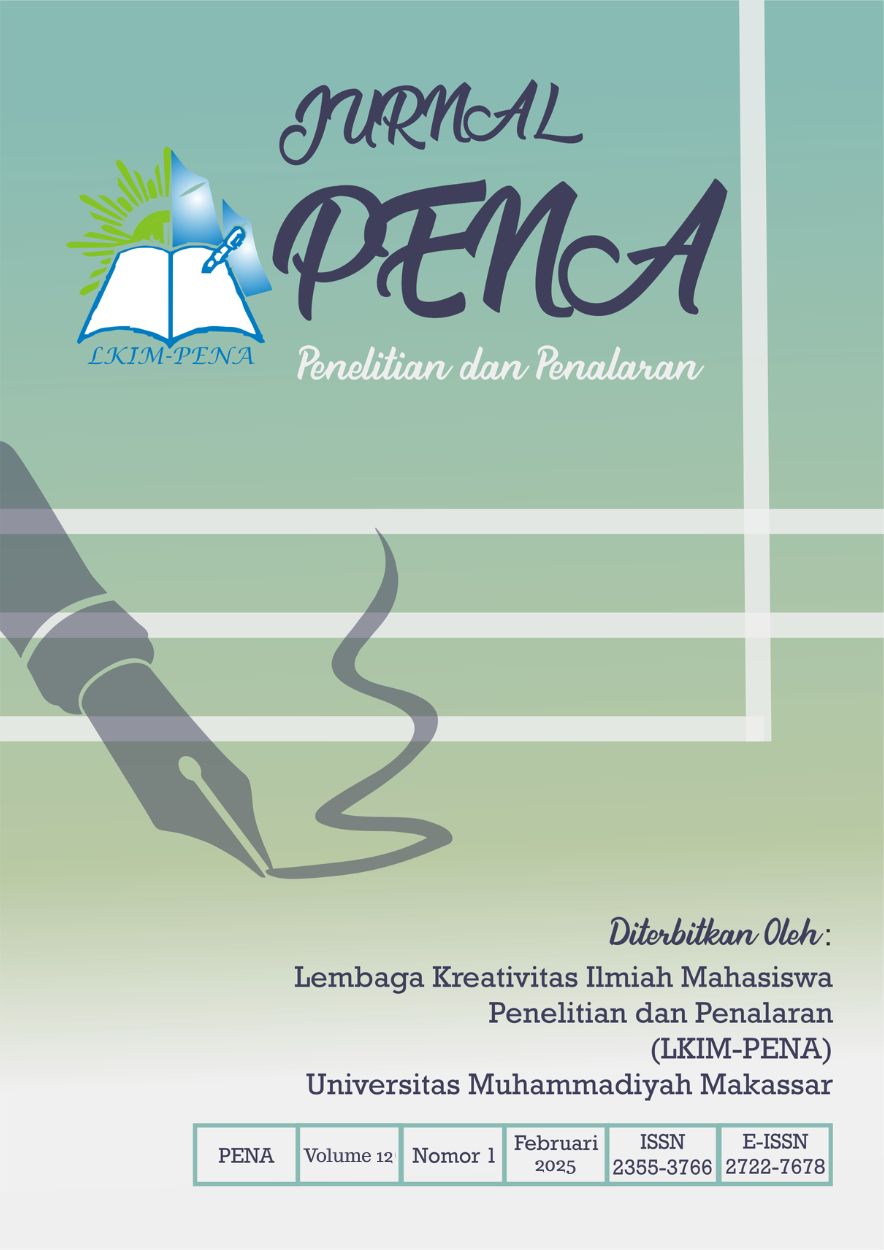Konseling Kelompok Melalui Teknik Self-Forgiveness (Studi Kasus pada Remaja dengan Penerimaan Diri Rendah)
DOI: https://doi.org/10.26618/jp.v12i1.17717
Konseling Kelompok, Self-Forgiveness, Penerimaan Diri, Remaja
Abstract
Penerimaan diri adalah proses atau perjalanan penemuan diri. Saat memasuki fase remaja, umumnya remaja telah memiliki pemahaman tentang diri sendiri untuk mengarahkannya menuju aktualisasi diri. Agar penerimaan diri tercapai maka remaja harus memenuhi kebutuhan dasarnya terlebih dahulu melalui mengenal dan memahami dirinya sendiri. Penelitian ini bertujuan untuk mengetahui efektivitas dari konseling kelompok melaui teknik Self-Forgiveness untuk meningkatkan penerimaan diri pada remaja. Penelitian ini menggunakan pendekatan kualitatif dengan metode studi kasus. Hasil penelitian menunjukkan bahwa konseling kelompok melalui teknik self-forgiveness efektif untuk membantu meningkatkan penerimaan diri pada remaja yang mengalami tekanan psikologis seperti perasaan gagal, tidak berdaya, kecewasa, sedih, dan rasa bersalah.
References
Cryder C. E, Springer S, & Morewedge CK. (2012). Guilty feelings, targeted actions. Pers Soc Psychol Bull, 38(5):607-18. doi: 10.1177/0146167211435796.
Enright, R. D. (1996). Counseling Within the Forgiveness Triad : On Forgiving , Receiving Forgiveness , and Self-Forgiveness. Counseling and Values, 40, 107–126.
Ernest, A. S., & Monika. (2023). Self acceptance sebagai langkah berdamai dengan diri sendiri. Jurnal Serina Abdimas, 1(2), 701-706.
Hsu, H. P. (2021). The Psychological Meaning of Self-Forgiveness in a Collectivist Context and the Measure Development. Psychology Research and Behavior Management, 14, 2059-2069.
Kirschenbaum, H. (2013). Values Clarification in Counseling and Psychotherapy. New York: Oxford University Press.
Lucas, M. (2004). Existential regret: A crossroads of existential anxiety and existential guilt. Journal of Humanistic Psychology, 44(1), 58–70.
Nasution, A. F. (2023). Metode Penelitian Kualitatif. Bandung: CV. Harfa Creative.
Napora, E. (2012). How adolescents and their single-mothers communicate in the south of poland. Polish Journal of Applied Psychology, 10(2), 107–127.
Porada, K., Sammut, S. & Milburn, M. (2017). Empirical Investigation of the Relationships Between Irrationality, Self-Acceptance, and Dispositional Forgiveness. J Rat-Emo Cognitive-Behav Ther 36(1), 234–251
Priyono, L. D., Anni, C. T., & Sugiyono. (2018). Pengaruh kondisi keluarga dan self acceptance terhadap kepercayaan diri remaja. Indonesian Journal of Guidance and Counseling: Theory and Application, 7(1), 30-36.
Rogers, C. R. (1942). Counseling and Psychotherapy; newer concepts in practice. Houghton Mifflin.
Ryff, C. D. (1989). Happiness is everything, or is it ? explorations on the meaning of psychological well-being. Journal of Personality and Social Psychology, 57(6), 1069–1081.
Sugiyono. (2012). Metode Penelitian Pendidikan Pendekatan Kuantitatif, Kualitatif, dan R&D. Bandung: Alfabeta.
Sharf, R. S. (2012). Theories of Psychotherapy and Counseling (5th Editio). United State: Cengage Learning.
Simon, T. (2016). The Self-Acceptance Project. Colorado: Sounds True.
Sugiyono. (2018). Metode Penelitian Kuantitatif, Kualitatif, dan R&D. Alfabeta: Bandung.
Tracy, J. L., & Robins, R. W. (2018). The Self in Self-Conscious Emotions : A Cognitive Appraisal Approach. New York: Guildford Press.
Vaish, A., Carpenter, M., and Tomasello, M. (2016). The early emergence of guilt-motivated prosocial behavior. Child Dev. 87, 1772–1782. doi: 10.1111/cdev.12628.
Woodyatt, L., Worthington, E. L., Wenzel, M., & Griffin, B. J. (2017). Part I : Understanding Self-Forgiveness. In L. Woodyatt, E. L. Worthington, M. Wenzel, & B. J. Griffin (Eds.), Handbook of the Psychology of Self- Forgiveness (pp. 3–16). Switzerland: Springer.

